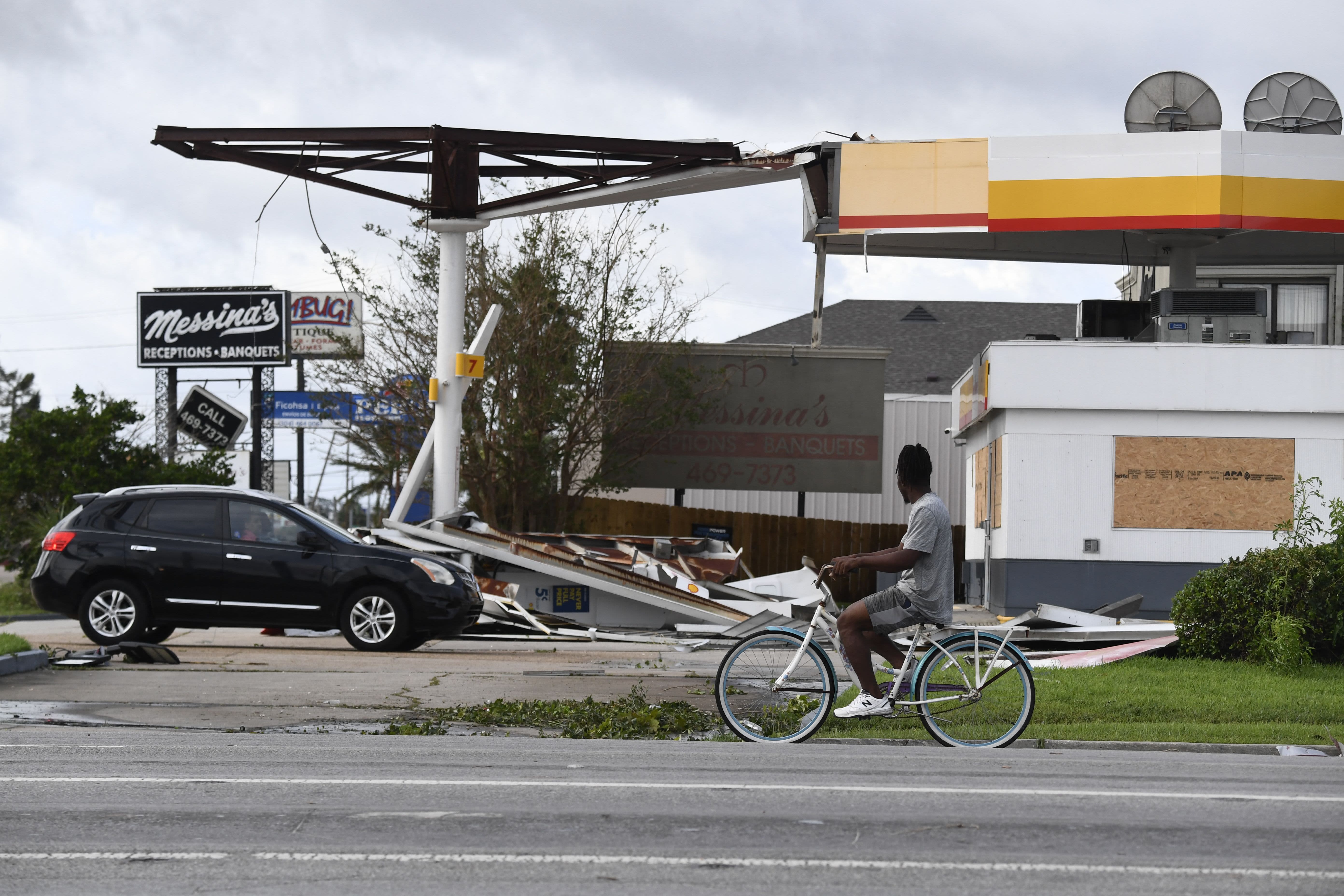
A person on a bicycle passes a damaged Shell station in Kenner, Louisiana, on August 30, 2021 after Hurricane Ida made landfall.
Patrick T. Fallon | AFP | Getty Images
Ida has lost some of its steam since making landfall in Louisiana on Sunday, but the system’s path over the Southeast still poses great danger, the National Hurricane Center said in an update Monday after at least one person had died from the storm.
Officials downgraded Ida to a tropical storm as it made its way inland early Monday, where it’s expected to bring heavy rainfall, tornadoes and the potential of severe flooding to parts of the Southeast. Rainfall could total 24 inches across portions of southeast Louisiana into far southern Mississippi.
Ida initially made landfall over Port Fourchon, Louisiana, as a Category 4 storm with winds of 150 miles per hour, one of the strongest storms to hit the region since Hurricane Katrina, the National Oceanic and Atmospheric Administration said.
It’s too early to know the extent of the damage in Louisiana from the storm, but search and rescue teams have started to deploy across the region. Louisiana Gov. John Bel Edwards said on MSNBC that the death toll is likely to increase.
Flooded streets are pictured after Hurricane Ida made landfall in Louisiana, in Kenner, Louisiana,August 30, 2021.
Marco Bello | Reuters
“Daylight will bring horrific images as the damage is assessed. More than 20,000 linemen will work to restore the deeply damaged power lines,” Shauna Sanford, communications director for Edwards, said on Twitter early Monday.
As of early Monday, more than 1 million Louisiana utility customers are without power, according to PowerOutage.us. More than 850,000 New Orleans customers still don’t have electricity, Entergy’s outages page showed.
A damaged electric line is pictured after Hurricane Ida made landfall in Louisiana, in Kenner, Louisiana, August 30, 2021.
Marco Bello | Reuters
Since making landfall, utility crews have moved in to assess the damage to the city’s power grid, a process Entergy said will likely take days. Restoring electrical transmission will take “far longer,” the company said in a tweet.
Due to its path, nearly all offshore Gulf oil producers suspended operations. The Bureau of Safety and Environmental Enforcement also estimated that roughly 84.87% of natural gas production in the Gulf of Mexico has been shut in.




